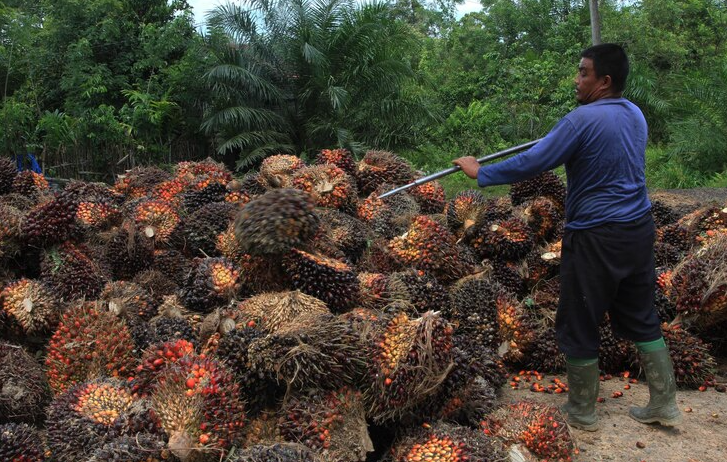Wilmar International, the Singapore-based agribusiness giant, is deepening its investments in Nigeria’s palm oil sector. In a recent announcement, the company confirmed plans to replant aging oil palm plantations and expand local edible oil production, citing improved foreign exchange (forex) access and relative stability of the naira as key motivators behind this renewed commitment.
This strategic move not only signals growing investor confidence in Nigeria’s economic reforms but also underscores the critical role of agribusiness in driving food security, job creation, and industrial growth.
Revitalizing Nigeria’s Palm Oil Legacy
Nigeria was once the world’s leading producer of palm oil in the early 1960s, accounting for over 40% of global supply. However, decades of neglect, aging plantations, and low investment saw the sector decline, with countries like Malaysia and Indonesia overtaking Nigeria in both yield and export volume.
Wilmar’s renewed investment presents an opportunity to revive this lost legacy, particularly by rejuvenating outdated oil palm estates and introducing modern, high-yielding varieties. These efforts are expected to significantly boost local production and reduce Nigeria’s reliance on imported edible oils, which have traditionally placed pressure on foreign reserves.
Economic Reforms Boosting Investor Confidence
Wilmar’s decision is largely informed by recent reforms implemented by the Central Bank of Nigeria (CBN) and the Ministry of Finance, including:
-
Improved access to foreign exchange for manufacturers and agribusinesses, making it easier to import machinery, seedlings, and processing equipment.
-
Stabilization of the naira, which has helped investors manage long-term risk and price predictability.
These reforms have begun to restore confidence in Nigeria’s economic environment, making it more attractive for foreign direct investment (FDI) in non-oil sectors.
Boosting Local Edible Oil Production
As part of its expansion strategy, Wilmar aims to scale up its local processing capacity for palm oil and other edible oils. The company currently operates in Nigeria through PZ Wilmar, a joint venture with PZ Cussons, and is known for popular consumer brands such as Mamador and Devon King’s cooking oil.
Increasing local refining capacity will reduce the need for bulk imports of refined palm oil, support Nigeria’s backward integration policy, and offer consumers affordable, high-quality cooking oil options. It will also stimulate rural economies, where most oil palm plantations are located.
Job Creation and Rural Development
The expansion is expected to create thousands of direct and indirect jobs, especially in farming communities across southern Nigeria where Wilmar’s operations are concentrated. From plantation workers and agronomists to transporters and factory employees, this initiative promises a significant boost to rural livelihoods and local economies.
Moreover, the replanting initiative will be accompanied by capacity-building programs for smallholder farmers, allowing them to adopt best practices in oil palm cultivation. This aligns with national goals of increasing youth and women participation in agribusiness.
Sustainability and Environmental Considerations
Wilmar has pledged to implement sustainable farming practices that align with international environmental standards. This includes avoiding deforestation, protecting biodiversity, and managing water resources responsibly. The company’s existing No Deforestation, No Peat, No Exploitation (NDPE) policy will continue to guide its operations in Nigeria, ensuring that expansion is not achieved at the expense of the environment.
National Implications
Wilmar’s investment has broader implications for Nigeria’s economy:
-
Supports food security by boosting domestic production of cooking oil.
-
Reduces import dependency, helping to conserve foreign exchange.
-
Drives industrialization, as palm oil feeds into cosmetics, pharmaceuticals, and biofuel sectors.
-
Enhances trade balance through potential future exports of refined palm oil and derivatives.
This expansion aligns with the Federal Government’s diversification agenda, particularly the vision to make agriculture a cornerstone of economic growth.
Conclusion: A New Chapter for Palm Oil in Nigeria
Wilmar’s expansion into Nigeria’s palm oil industry is not just a business decision, it is a strategic endorsement of Nigeria’s economic direction and agricultural potential. By investing in replanting, processing, and farmer development, Wilmar is helping to reposition Nigeria as a serious player in the global edible oil market.
As reforms take root and confidence grows, Nigeria’s palm oil sector may well experience a renaissance—one that brings jobs, food security, and industrial growth to the forefront of the national agenda.
Published by Xamblog.com – Tracking progress in agribusiness, trade, and industrial development across Africa.
Last Updated on June 24, 2025 by kingstar





